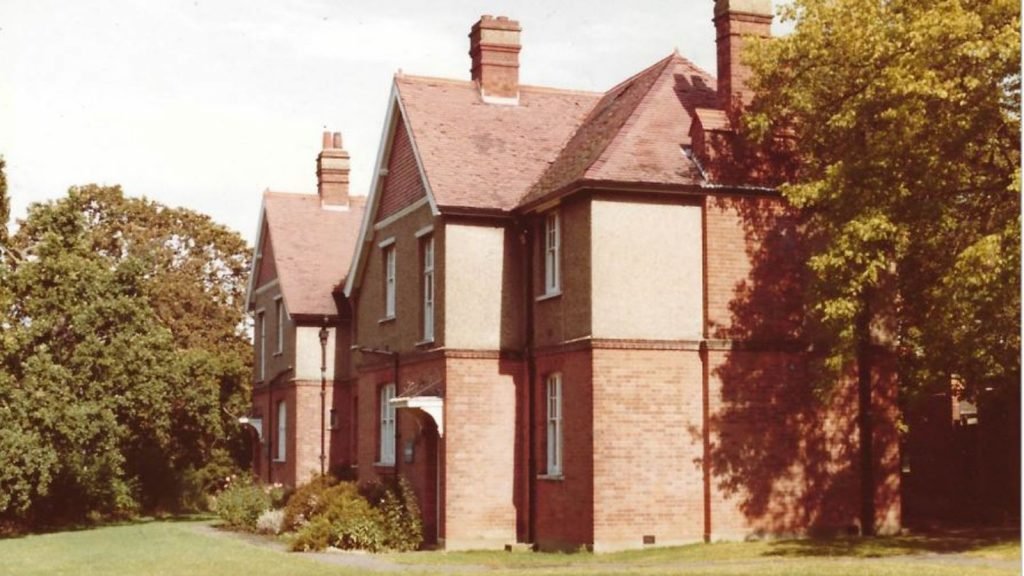A Culture of cover-up saw hundreds of children subjected to ‘cruelty and sexual abuse
One victims expresed in the report how her experience of care homes was ‘Like hell’
Report findings are based on 19 days of public hearings held last summer. It is one of three investigations by the inquiry into the response by local authorities to allegations of child sexual abuse, alongside Rochdale and Nottinghamshire.
The independent inquiry into child sexual abuse (IICSA) found more than 705 allegations of sexual abuse against hundreds of staff and individuals connected with just three homes in the borough. The true scale of abuse was likely to be far higher, it said.
It said Lambeth council had allowed violence and sexual assault to flourish in its children’s residential homes, had failed to act against known abusers, or tackle the brutal, harsh and punitive culture of its homes – with devastating consequences for many children in its care.
The inquiry looked at five children’s homes: Shirley Oaks, Angell Road, South Vale Assessment Centre, Ivy House and Monkton Street.
One of the council’s biggest care homes, Shirley Oaks, received allegations of abuse against 177 staff members or people linked to the home. Up to 350 children lived at the home in Croydon until its closure in 1983.Advertisement
The report described Shirley Oaks and South Vale homes as “brutal places where violence and sexual assault were allowed to flourish”.
At Angell Road, children – including those under the age of five – were systematically exposed to sexual abuse, the inquiry found. It said that the true scale of the sexual abuse against children will never be known, but is certain to be significantly higher than has been formally recorded.
“It is hard to comprehend the cruelty and sexual abuse inflicted on children in the care of Lambeth council over many years, by staff, by foster carers and their families, and by volunteers in residential settings,” the report concludes.
Although most of the children had been taken into care after suffering violence and neglect at the hands of family members, the report noted that for some “the experience they had [in the residential homes] was worse than living at home with their birth families”.
The council failed on multiple occasions to protect children, including employing staff who it knew posed a risk to children, failing to investigate employees suspected of sexual abuse, and exposing children to situations where it knew they were at risk of abuse.
Deaths in care and cover ups

The section titled ‘Deaths in care and cover‐up‘ makes distirbing reading.
It is difficult to overstate the significance of the unlawful killing of a child in the care of a local authority. Tyra Henry was 22 months old and suffered appalling injuries.
Her father had grievously injured her brother, when he was a toddler, prior to Tyra’s birth. The Tyra Henry public inquiry report chronicled the circumstances that led to Tyra living with her father despite the fact that she was in Lambeth Council’s care.
The report noted, in stark terms, that “Lambeth’s own position as Tyra’s legal parent was effectively forgotten” during the course of her short life. [1] The inquiry brought with it external and detailed public scrutiny of failures by individual staff, of systems and of the committee system. It should have been an impetus for change, but it was not.
Another item case within that perticuly depresing section states: In 1975, a baby died in a Lambeth children’s home in shocking circumstances. She was found dead, harnessed to a top bunk bed in a children’s home. There was an internal inquiry but no independent inquiry (save for a limited coronial process) and there was no police investigation. Her brother, Russell Specterman, told the Inquiry that “to this day” neither he nor his family have received a full explanation as to what happened to his sister. This lack of understanding causes him “overwhelming pain”.

The effect on many children in Lambeth’s care was devastating, the report says. As one witness, known as LA-A309, put it: “I felt from an early age that my feelings were inconsequential or of little value and that my pain didn’t matter. It was clear from an early age that no one really cared about me.”
Over 40 years just one senior employee was disciplined for their part in the catalogue of abuse. Six perpetrators of sexual abuse connected to Lambeth homes, some of whom were council employees, were convicted of child sexual abuse between 1994 and 2019.
Many staff in Lambeth children’s homes “demonstrated a callous disregard for the vulnerable children they were paid to look after”. Some failed to act when they knew about sexual abuse, and showed little compassion to the victims. “It was as if staff intended to create a harsh and punitive environment,” the report concludes.
It is also critical of the children’s services inspectorate, Ofsted, and its predecessors, for failing to to do enough to identify the serious failures in services and staff practices, and the Metropolitan police for failing to properly investigate links between offenders identified in separate criminal investigations.
IICSA has recommended the Metropolitan police investigate the case of one child, known as LA-A2, who was found dead in a bathroom in one of the homes, Shirley Oaks, in 1977. The report found the council had failed to inform the coroner that he had alleged he was sexually abused by a staff member there.
The leader of Lambeth, Cllr Claire Holland, said: “Lambeth council wishes to re-state our sincere and heartfelt apology to all victims and survivors of abuse and neglect while in Lambeth’s care. The council was responsible for their care and protection but failed, with profound consequences. The council is deeply sorry for their experiences.”
Lambeth council’s redress scheme has given out paid out £46m in total as of August 2020, it is dobtfull one peny of which could ever compansate fot the tradgy these children have gone through.
Freemasons

As part of this investigation, it was considered whether there was evidence of Freemasons influencing investigations into sexual abuse of children in Lambeth Council’s care.
The Inquiry received evidence that Donald Hosegood, who was prosecuted for sexually abusing children in his care at Shirley Oaks, waved a Masonic handbook when he was arrested. [1] DI Simon Morley accepted that this was clearly done in an attempt to influence the arresting officers. [2] While the records from the time show that, in DI Morley’s words, “it held no truck” with the arresting officers, it is of concern that Hosegood had the impression that being a Freemason would assist him.[3]
The terms of reference for the 1995 report by Elizabeth Appleby QC referred to “the extent of freemasonry within Lambeth”. [4] Elizabeth Appleby QC exchanged correspondence with the Grand Secretary of the Freemasons. [5] She commented in her report:
“ During the course of my inquiry I have received numerous allegations as to the cause of Lambeth’s problems including the influence of Freemasonry, a ‘Mafia’ exerting pressure over the officers and a pornographic ring holding officers and members to ransom. I have received no evidence to substantiate these allegations.”[6]
The Inquiry did not receive any direct evidence of Freemasonry influencing or obstructing the investigation of child sexual abuse. We understand from the closing submissions of Lambeth Council that the requirement to sign a declaration of interest for all staff has been a part of its Code of Conduct since the late 1990s, and this includes whether they are a member of the Freemasons. [17] It is important that declarations of relevant interests are made to ensure greater transparency.
Labour to busy virtue signalling to care
The report is scathing of what it calls the “progressive” leftwing culture of the council in the 1980s. “Many councillors and staff purported to hold principled and beliefs about tackling racism and promoting equality but in reality they failed to apply these principles to children in their care.”
It notes that the overwhelming majority of children in its homes were black. At Shirley Oaks in 1980 57% of the children in care were black; at South Vale home children a decade later 85% of the children were black. “Racism was evident in the hostile and abusive treatment towards them by some staff.”
The chair of the inquiry, Prof Alexis Jay, said the children in care were pawns in a “toxic power game” within the council in the 1980s and 90s, which was characterised over many years by bullying, racism, nepotism and sexism, against a backdrop of political chaos, corruption and financial mismanagement.
She added: “This all contributed to allowing children in their care to suffer the most horrendous sexual abuse, with just one senior council employee disciplined for their part in it. We hope this report and our recommendations will ensure abuse on this scale never happens again.”
The IICSA report is its third since 2018, following previous inquiries into Rochdale and Nottinghamshire councils. It focuses on conditions in five of Lambeth’s care homes in the borough from the late 60s, especially a period in the 70s and 80s when it says physical and sexual abuse in its children’s homes was “pervasive.”
The Lambeth inquiry held five preliminary hearings between 2016 and 2020, and a final public hearing over four weeks in June and July last year, with evidence from 57 complainants, survivors and victims, from expert professional witnesses and former staff and councillors.
A government spokesperson described the report as shocking, adding: “Protecting vulnerable children and keeping them safe from harm should be a top priority for local authorities, as well as for all those responsible for their care, including carers and the professionals working with them.”
The inquiry is recommending the Metropolitan Police consider whether there are grounds for a criminal investigation in this case.
Lambeth Council has accepted that it failed children in its care, and apologised to the inquiry.
Leader of the council, councillor Claire Holland, said in a statement: “On behalf of all elected members and staff, Lambeth Council wishes to re-state our sincere and heartfelt apology to all victims and survivors of abuse and neglect while in Lambeth’s care.
“The council was responsible for their care and protection but failed, with profound consequences. The council is deeply sorry for their experiences.”
She said the report sets out that the “council of the past failed to protect many of its most vulnerable children” and “a disproportionate number of those children were from Black, Asian and Multi-Ethnic backgrounds.”
“The extent and scale of the horrendous abuse, which took place over many decades, remains deeply shocking”, she added.
“We have received the recommendation by IICSA namely ‘the death of LA‑A2 whether the Met should consider whether there are grounds for a criminal investigation into Lambeth Council’s actions when providing information to the coroner about the circumstances surrounding LA‑A2’s death’, which we will now assess.
“We encourage anyone who has been the victim of child sex abuse to come forward and speak with us.”
The council was mired in corruption and financial mismanagement during the decades of abuse, with “politicised behaviour and turmoil” dominating its culture, according to the report.
The report partly blames the Labour council’s battle against the Conservative government in the 1980s, saying it sought to “take on the government” to the detriment of local services.
“During that time, children in care became pawns in a toxic power game within Lambeth Council and between the council and central government,” the report added.
The IICSA is calling on the Met Police to consider a criminal investigation into why allegations of sexual abuse made by a boy, later found dead at the Shirley Oaks care home, were not passed on to the coroner by Lambeth Council in 1977.
The report makes four recommendations, including vetting checks for current foster carers, and mandatory training on safeguarding for elected councillors.
The full shocking report here
Support Independent Journalism Today
Our unwavering dedication is to provide you with unbiased news, diverse perspectives, and insightful opinions. We're on a mission to ensure that those in positions of power are held accountable for their actions, but we can't do it alone. Labour Heartlands is primarily funded by me, Paul Knaggs, and by the generous contributions of readers like you. Your donations keep us going and help us uphold the principles of independent journalism. Join us in our quest for truth, transparency, and accountability – donate today and be a part of our mission!
Like everyone else, we're facing challenges, and we need your help to stay online and continue providing crucial journalism. Every contribution, no matter how small, goes a long way in helping us thrive. By becoming one of our donors, you become a vital part of our mission to uncover the truth and uphold the values of democracy.
While we maintain our independence from political affiliations, we stand united against corruption, injustice, and the erosion of free speech, truth, and democracy. We believe in the power of accurate information in a democracy, and we consider facts non-negotiable.
Your support, no matter the amount, can make a significant impact. Together, we can make a difference and continue our journey toward a more informed and just society.
Thank you for supporting Labour Heartlands












